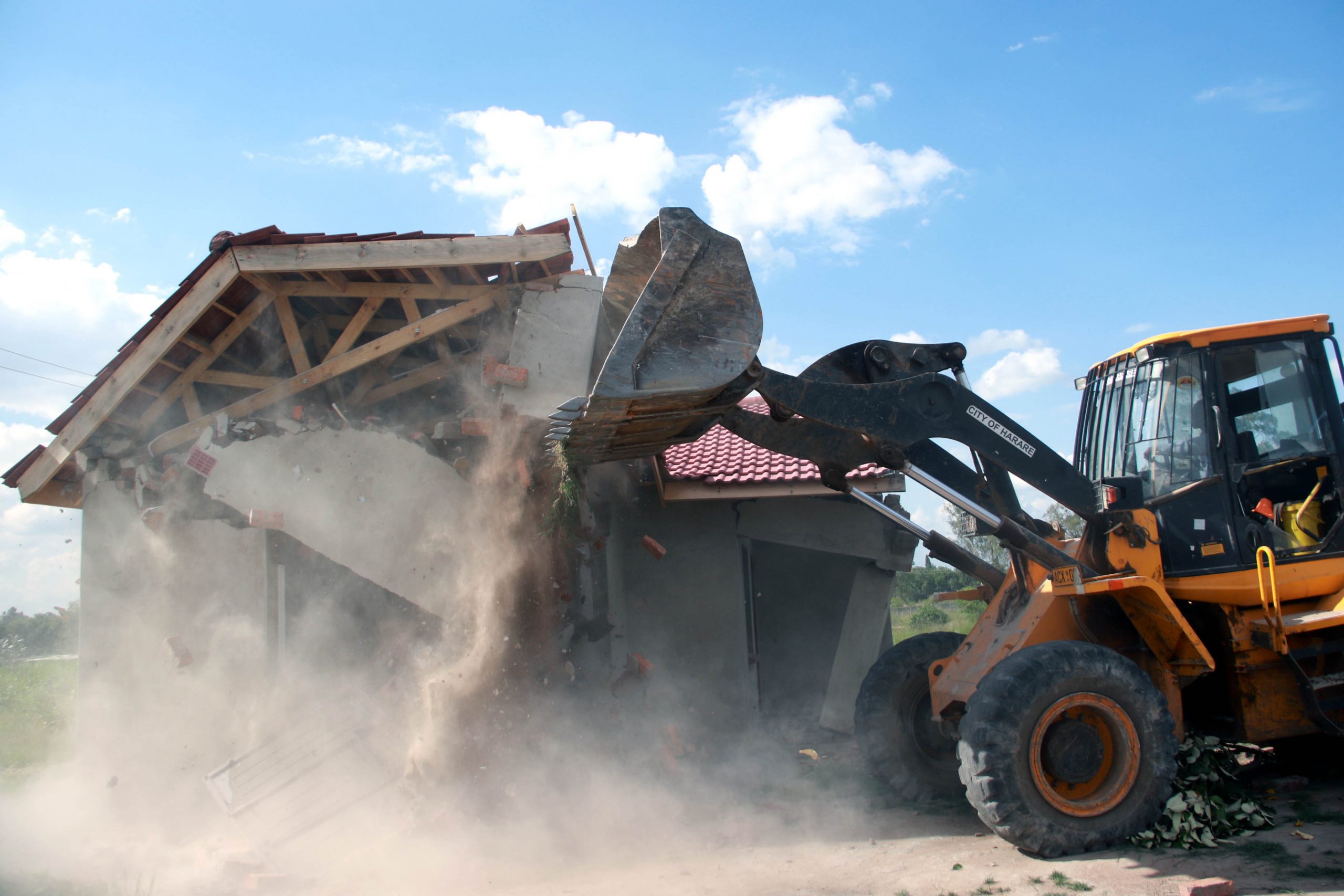
The sight of bulldozers razing down expensively built houses along Harare’s Joshua Mqabuko Nkomo Express Way last week was not for the faint-hearted.
STANDARD COMMENT
At least 15 houses were brought down on Thursday in the blitz that was linked to President Robert Mugabe’s return from a long holiday in the world-class resort of Dubai the following day.

Speculation was rife that Harare City Council rushed to demolish the structures near the road leading to Harare International Airport because Mugabe’s return was imminent.
Mugabe condemned the settlement during the official opening of the Joshua Mqabuko Nkomo Expressway late last year following an upgrade and the president quickly gave a directive that the houses must be demolished.
Some 1 200 families have reportedly been relocated from the area and another 980 are awaiting word from the authorities to move to Harare South.
The relocations have not been smooth as some had their structures demolished by council in an earlier exercise.
- Chamisa under fire over US$120K donation
- Mavhunga puts DeMbare into Chibuku quarterfinals
- Pension funds bet on Cabora Bassa oilfields
- Councils defy govt fire tender directive
Keep Reading
However, there was no better way to drive the point home that the authorities can use citizens and dump them when they are no longer useful to their machinations with devastating effects than last week’s demolitions.
The majority of the victims of the demolitions that began in Harare last year and targeted illegal settlements were members of housing cooperatives linked to the ruling Zanu PF.
Most of these settlements sprouted when Harare was being run by commissions appointed by the Zanu PF government.
Council folded its hands while these so-called illegal suburbs took shape because politics at the time subordinated sound town planning.
Mugabe flew in and out of Harare for years, presumably without noticing this “menace”, only to express his disgust last year.
However, a closer look at the issue of illegal settlements in Harare shows that there was some method in the madness.
The problem started when Zanu PF lost grip of the capital city in the 2000 elections where the MDC swept all the council wards and parliamentary seats.
Zanu PF had to employ all sorts of tricks to re-establish its hegemony in Harare and the land reform programme that had just started then was a perfect launch pad for its nefarious schemes.
The government used land seized from commercial farmers to lure supporters to help it win elections, hence the birth of cooperatives that were led mostly by charlatans that saw a chance for a quick buck.
As a result settlements sprouted around the capital, putting a severe strain on council infrastructure that was now overloaded. Consequently, the city could no longer supply its residents with enough water and sewer leakages became the order of the day because the infrastructure could not cope with the ballooning population.
Most parts of Harare have become an eyesore because politics has overwhelmed professional town planning.
But this does not by any means justify the barbaric treatment the settlers are getting from council with government’s express approval. To suggest that council had no alternative but to demolish these houses at a time Zimbabweans are finding it almost impossible to build their own decent shelter, would be dishonest.
Council should have considered regularising the structures before making the offenders pay fines that would have been used to ameliorate the damage.
The local authority and government went for the easiest solution because there is no deterrent to impunity in Zimbabwe, as Operation Murambatsvina demonstrated 10 years ago.
Those responsible for the decisions that are now ruining thousands of lives in Harare should be ashamed of themselves and must know that Zimbabweans are watching.











